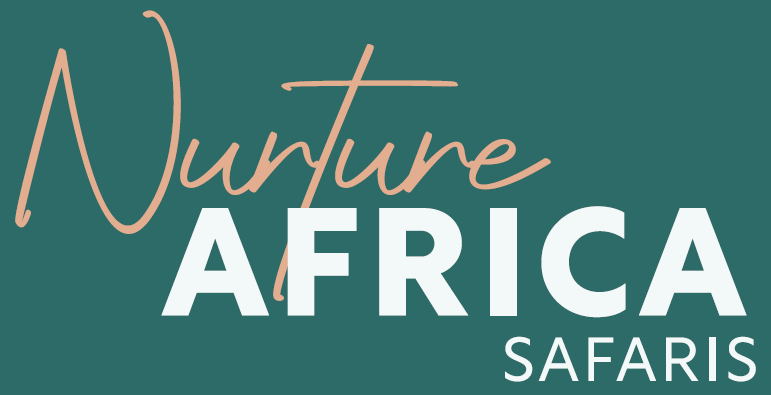
How to budget for an African safari
Without the information you need, budgeting for an African safari can feel like an overwhelming task. There are many different cost components involved which are tricky to navigate on your own. We aim to make the budgeting process easier by giving you a rough idea of what kind of safari experience you can expect for your money. We'll look at the various factors that contribute to the overall cost of a family safari and offer you suggestions for making the most of your budget. Your next step is to speak to one of our travel experts who can help you meticulously plan a family safari around your means.
Is an African safari worth the money?
Going on an African safari is not the most low-budget vacation your family can take, but it is one they will certainly always remember. While not inexpensive, most returning families won't hesitate to say their safari in Africa was a completely life-changing experience worth every penny spent. When weighing up the cost of travelling to Africa with your family, also keep in mind that a safari is unlike any other trip because of its small scale and massive operational costs. The remote locations of many safari camps in Africa are made very costly to access due to underdeveloped infrastructure and several other factors.
In every regard, a lot needs to happen for a luxury safari lodge to come into existence before one even begins to consider the day-to-day operational costs. The building materials, the bed you sleep on, and every piece of decor and furniture must be transported by road, plane or ferry. Electricity must be provided in areas without any, plus roads built and maintained around your camp. Then, there are the game drives, safari guides and conservation to consider. Most of the food you eat at lavish meals has to be hauled long distances too. Other contributing factors include a 3:1 staff-to-guest ratio on average at luxury lodges and a low-impact tourism philosophy that allows only small numbers of guests at a time. Also, many African countries rely largely on tourism for their GDP and impose extraordinarily high travel taxes. All the aforementioned running costs have to be covered in safari lodging rates. Comforting to remember though, is that the money you spend also helps to preserve these pristine wilderness areas and support neighbouring communities through employment and upliftment programmes.
Safaris in Southern Africa
When you compare apples to apples, safaris in Southern Africa are on average about 10-20% more economical than East Africa. However, the overall cost of a safari in either region still largely depends on the specific camps or lodges you visit. South Africa and Namibia are the continent's most affordable destinations for family safaris. While there are plenty of luxury camps available, in these destinations you can opt to self-drive (without a safari guide) and self-cater which reduces costs significantly. Zimbabwe also offers a wide range of low-budget family safari options, while the sheer remoteness of many camps in Botswana and Zambia make these the most expensive safari destinations in Southern Africa.
Safaris in East Africa
Parts of East Africa are less easily accessible than Southern Africa as a result of underdeveloped infrastructure and some extremely secluded camps and lodges. In countries like Kenya and Tanzania, you often have to travel long distances—sometimes via charter plane—between airports, cities and safari camps which can increase the cost of your family safari. Furthermore, park entry fees are up to three times higher in East Africa. Despite greater logistical costs, by minimising the number of stayovers in your itinerary, East Africa can be a cost-effective family safari destination for many budgets.
How to budget for an African safari
The cost of an African safari depends on your destination, when you visit, what you do, and the level of service and privacy you desire. Accordingly, how much you spend on a family safari can vary greatly. You will have a much clearer idea of what to expect after speaking with one of our safari planners about your family's specific needs and preferences. They will help you with the logistics involved around visiting various safari regions and help you compare mid-range luxury and high-end luxury safari camps which goes far beyond aesthetics.
Our safari planners will discuss optional service amenities that can enhance your safari experience, such as a private butler and dedicated wildlife guide. Regardless of which camps, activities and paid services are within your budget, there are plenty of excellent safari options across Africa that do not compromise on providing luxurious and authentic family safaris.
Let's look at 7 ways you can spend a little less yet still ensure a dream African safari experience for your family.
Save on long-haul flights
As a long-haul destination, flights to Africa can be a major expense of your family safari, depending on where you are coming and the airline class you travel. November, February and March are often the most affordable months to travel to Africa while the Christmas period is the costliest. Let us help secure well-priced flights to allow you more wiggle room in other areas of your family safari budget. It's always worthwhile getting the best deal if the routing and schedules are not too unfavourable.
Time your visit just right
From May to October, in the high season for African safaris, rates are more expensive. Why? Game viewing is easier (not better) when the dry bush is sparse and animals concentrate around permanent water sources. During the wet, summer season from November through April (East Africa has two, shorter dry and wet seasons), fewer visitors means safari rates are reduced to increase demand. This presents an opportune time for a family safari anywhere in Africa when the overall savings on a trip can be as much as 40%.
Many African safari destinations offer superb game viewing year-round, with Zambia and Botswana arguably even more rewarding in the wet season depending on your preferences. Planning a safari during the off-peak season can open up more possibilities for any visiting family. Like premier safari destinations and luxury options in countries like Botswana and Tanzania which might otherwise be outside budget. Being as flexible as you can with your travel schedule gives your expert safari planner the best chance of finding excellent value for your family vacation in Africa.
Travel less and see more
As we mentioned, the best way to utilise your safari budget is to visit destinations that are fairly close together and easily accessible. We always advise guests to dedicate ample time to each location instead of visiting as many game parks and lodges as their schedule allows. Spending at least 2-3 nights at each camp or lodge will help you fully appreciate the uniqueness of each location and take advantage of all the game-viewing opportunities on offer.
The high costs that can be associated with travelling between camps and lodges make short stays even less desirable. Hopping between camps a lot also cuts into your valuable game-viewing time and can also cause fatigue. Through many years of first-hand experience and speaking to thousands of guests, we can all but guarantee, you will enjoy a more immersive and rewarding safari experience if you visit a maximum of 2-3 destinations per week of travel
.
Know which lodges to go to
The biggest portion of your safari budget will likely go to lodging expenses, which usually includes all game drives, meals and non-premium drinks unless you are self-driving in South Africa or Namibia. Generally speaking, if you plan to visit remote camps and lodges far from cities and infrastructure, you will need to budget more for your family safari. These secluded accommodations incur higher running costs which include transporting guests, food and other goods over long distances. While the top-tier luxury lodges in extremely remote locations usually offer guests a better overall safari experience, the choices you ultimately make will very much depend on your family's specific tastes, interests and, of course, budget.
Explore outside the parks
For the logistical reasons mentioned, limiting your experience to game parks while in Africa can be costlier than diversifying your family vacation. Safaris are generally more expensive per night than stayovers in hotels, lodges and even family-size villas. Combining your safari with a few days in a city or on the beach can be a wonderful addition to any itinerary and lower the cost of your trip quite significantly. Some of Africa's most celebrated cities, islands, white-sand beaches and cultural sites like Victoria Falls, Zanzibar and Cape Town are within easy reach of the best safari regions.
Keep it in the family
Some family-oriented safari camps are designed to accommodate multi-generational groups and go out of their way to help guests of all ages connect with and learn about the African wilderness. These partner camps and lodges can arrange a private family vehicle, allowing you to set your own pace on game drives and enjoy the full attention of a dedicated safari guide throughout your stay. The extra cost for these added services might well be worth factoring into your budget to ensure your whole family, including young children, can make the most of their African safari experience.
Build a custom safari
Depending on your specific needs, building a custom family safari with a tailormade itinerary is not necessarily less affordable than a package deal. Opting for the latter will ensure your family gets exactly what you want. Our expert safari planners will ask the right questions to help you craft a family safari perfectly suited to your preferences and budget. We'll start with the broad strokes like finding the right destination for your needs. For instance, if your priority is catching the annual Great Migration in East Africa, you will want to focus on the Serengeti or the Maasai Mara. If ticking off the Big 5 is a must for you, we might suggest parks like the Kruger or Hwange in Southern Africa. Once we have settled on a time and destination, step by step we will refine the details relating to accommodation and service until we meet all your criteria for an unforgettable African safari experience.
